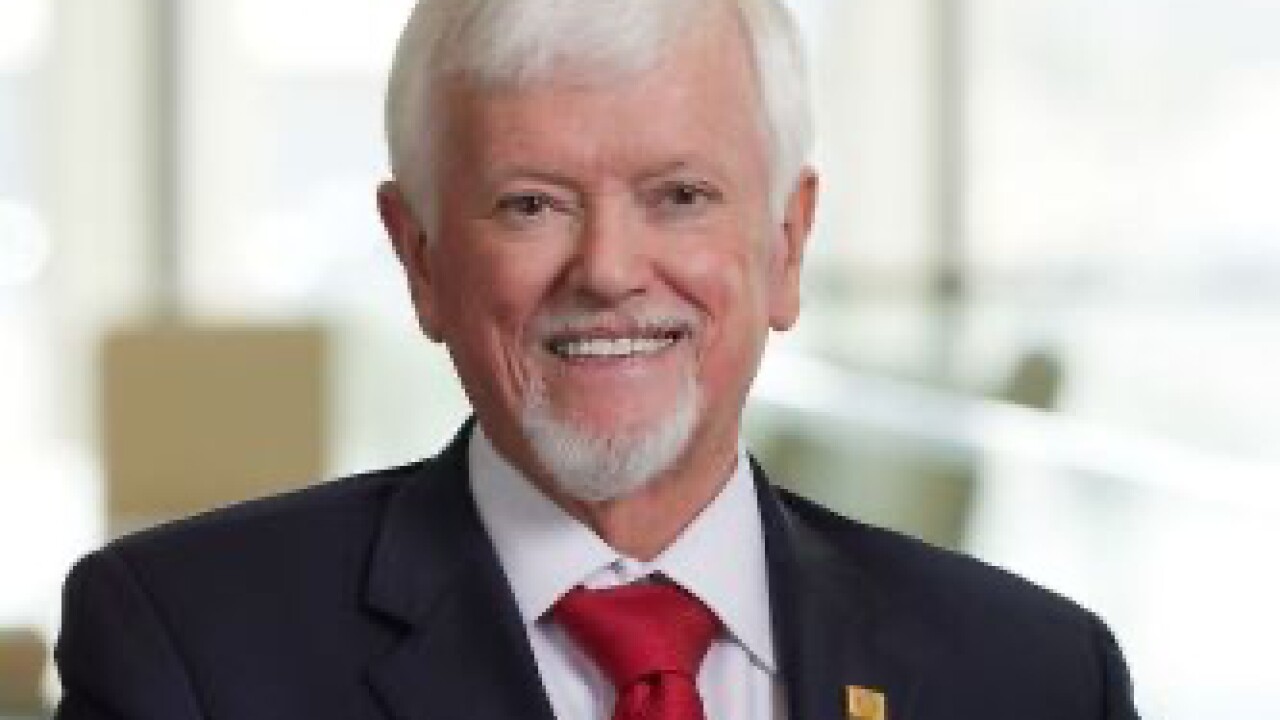WASHINGTON – Consumer Financial Protection Bureau Director Richard Cordray told credit union leaders at the National Association of Federal Credit Unions Wednesday that they have a friend in the bureau, but tension between the audience and the director was palpable.
"Credit unions often note that they made consumer protection their first priority long before the Consumer Bureau was born," said Cordray at the annual NAFCU congressional caucus. "We agree that you did not cause the financial crisis and performed well during that very difficult period in our country's economic history."
But when Cordray concluded his remarks the audience shouted for the director to take questions as he exited stage left.
Rather, credit unions who feel overburdened by regulations and in particular CFPB rules, were more attuned with Republican lawmakers who called for reining in the regulator.
"You guys are Main Street USA. You are the exact opposite of Wall Street, but who is suffering most, who is being punished most by wall street reform - it is you and your members," said Rep. Andy Barr, R-Ky., to strong applause from the audience.
He noted the recent $190 million settlement between Wells Fargo, the Consumer Protection Bureau, Office of the Comptroller of the Currency and the Los Angeles city attorney.
"In fact I think we should have oversight hearings on what happened at Wells Fargo, but it shouldn't just be about [the culture at Wells; it] should be about the failure of Dodd-Frank and the failure of CFPB to focus on its core mission. They are so far flung in what they are supposed to be doing, instead attacking you—credit unions and your members—that they are asleep at the switch," said Barr.
Rep. Blaine Luetkemeyer, R-Mo., also took questions from the crowd, offering this response to one member of the audience who asked why the CFPB couldn't be ruled unconstitutional.
"I think that there is an opportunity to have them quite frankly, thrown completely out if you get the right court and the right set of circumstances and the right situation," said Luetkemeyer, pointing to a pending court case at the U.S. Court of Appeals for the D.C. Circuit that will make a ruling on the constitutionality of the CFPB's structure.
However, the CFPB has staunch defenders that are also credit union supporters, including Maxine Waters D-Calif., the top Democrat on the House Financial Services Committee.
"Credit unions are different than big banks and that difference should be reflected in how they are regulated," said Waters. "Just as I have for mortgage and small-dollar lending rules, I will continue to work closely with the CFPB to deliver real results for credit unions and to make sure that community-size institutions can safely and effectively serve consumers."
Waters mentioned a letter that was circulated among lawmakers and sent to Cordray requesting that the bureau exempt community banks and credit unions from a number of its rulemakings. Cordray determined that the bureau does not have the statutory authority to make such exemptions, so Waters said she would consider legislation to change the statutory requirements as early as January.
"Because the CFPB resists that and there is not the support for that, I think we may have to go to legislation. And while I have great respect for the Consumer Financial Protection Bureau and the role it plays and the role it must play because of Dodd-Frank, in January I am going to take a look at this issue, and if legislation is needed to clarify, I will take up that legislation. I will move forward with it," said Waters.
She also compared the credit union tax exemption to motherhood and apple pie and said "we are not giving up motherhood or apple pie."
In his remarks, Cordray also talked about new mortgage rules that have increased compliance costs and have made lending more difficult for credit unions, but said that credit unions should actually benefit from the rules.
"Many credit unions have focused on the compliance burdens of the new rules and they are very real, but they overlook the positive benefits of the rules," said Cordray in his remarks. "A safer mortgage market that does not allow doc loans—the kind you did not make—or loans that can be underwritten or are misleading teaser rates – an approach that you did not take – as the market presents more favorable ground for lenders like credit unions to compete fairly."
He added that the bureau "is building out a vigorous supervision program over non-bank mortgage lenders and mortgage servicers, you are being put on a level playing field with your competitors for the first time ever."
"When bad practices are rooted out, good practices are able to thrive, freed from the unfair competition of a race to the bottom. That is exactly what has happened for credit unions over the past two years," said Cordray.





